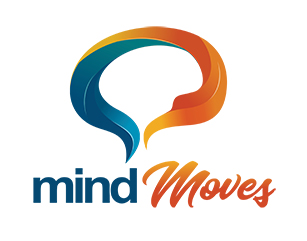Are you Operating on Auto-Pilot?

When you speak to others, how do you sound – to them?
What do others see when you talk to them?
How do they feel after having had a conversation or interaction with you?
Have you really heard yourself and listened, not so much to the words you say, but the way in which you deliver them?
Would you pay attention to you if you were talking to you?
Would you take instructions from you?
These questions provide cause for contemplation as there’s much more to how you communicate than your words. And we all know this, however we’re not always aware of it when we are in the act of conversing with another person.
Much of the time our communication is habitual. What I mean by that is that we don’t consciously think about the how and what of our communication delivery. We simply ‘respond’ based on what we think we’ve heard or seen. What’s interesting when I’m coaching, is when this response is questioned, I will often hear things like “it’s just the way I do things” or, “it’s how I was taught and there’s nothing I can do about it”.
From an NLP perspective we refer to this as an ‘unconscious’ response, although I prefer to think of it as being on ‘auto-pilot’. When I say unconscious I don’t mean that you’re asleep. I mean that we respond to requests and conversation often without really thinking about what response the other person receives from us. That’s why it’s a lot like being on auto-pilot, or pre-programmed, and think it can be likened to driving your car. You get in and drive and you no longer have to practice co-ordinating the clutch, accelerate and gear shifter like you did when you were learning. You ‘just know’ and you simply do it without consciously thinking. Have you had the experience when you’re driving, you know where you have to go and you simply drive there without really being aware of your decisions? Often you’ll arrive at your destination and you can’t remember passing certain landmarks along the way. Yep – we all do it. That’s the kind of auto-pilot I’m referring to.
As well as driving on auto-pilot we often converse in auto-pilot. If you don’t believe me, think about how many times you’ve said “Hello, how are you?” and not waited for a response. Yep – me too. Habit. Auto-Pilot. Sometimes we aren’t aware of ‘how’ we sound or ‘what’ we look like when we are in our ‘auto-pilot’ communication mode. And when things go wrong, as they sometimes do, we might blame the other person, or our parents, or our upbringing because “It’s just the way I am”. As if this is our permanent state and way of being, never to be changed again.
There are many different ways that we use to create connections with others, that aren’t words. Have you ever noticed ‘a look’, loving or otherwise from someone close to you? Have you ever heard a ‘tone’ in someone’s voice and called them on it? Have you ever felt your breathing shift or your skin prickle when you hear or see a certain person?
This sensory information gives us more detailed information than our words and when you are conversing with another human being this sensory data has the potential to enrich our relationship with others. That’s if we stop and notice it. When you remain on auto-pilot you may miss these signals. Is it any wonder that we can’t understand why the other person didn’t get our message? Or follow our instructions? If we are not consciously giving our attention to the person, we can miss the vital signals and respond in a way that is inappropriate. When the person we are talking to responds ‘in a tone’ or chooses to ignore us, we may turn around and allocate blame, as if it’s their fault, when really we need to take some responsibility ourselves.
Whether you like it or not, we use sensory information every day in every situation with every person. Here’s the good news. You can always learn. You can always adapt, adjust and change, if you want to. And you can adjust your auto-pilot if you wish to, by creating new patterns of communication.
If you’d like to learn more about how you can adjust your auto-pilot to give you increased your flexibility and build healthy relationships across all aspects of your life, check out our upcoming communication skills course.
